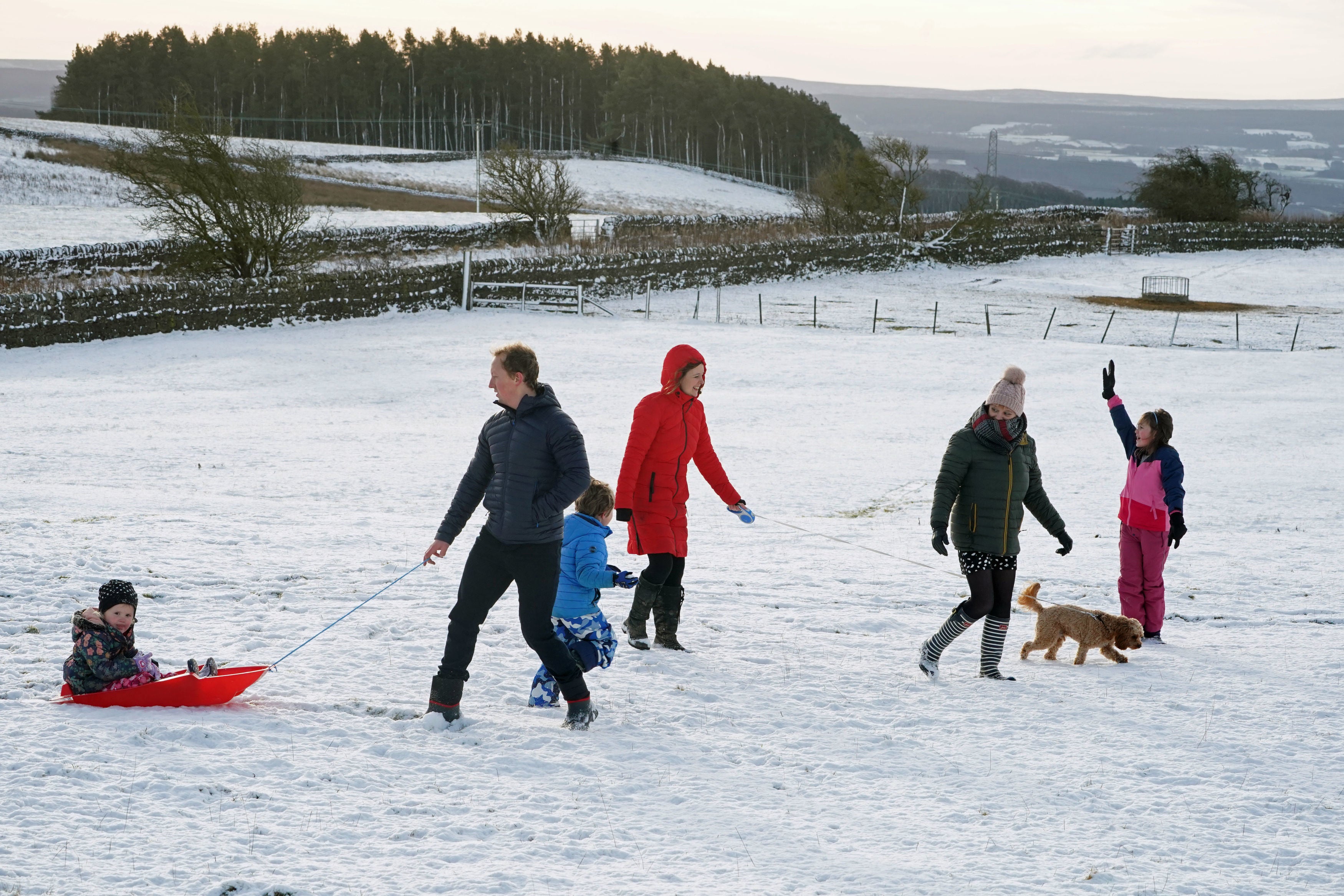Will there be a white Christmas in 2021?
Birmingham is the current favourite to experience Christmas snowfall, according to William Hill

Your support helps us to tell the story
From reproductive rights to climate change to Big Tech, The Independent is on the ground when the story is developing. Whether it's investigating the financials of Elon Musk's pro-Trump PAC or producing our latest documentary, 'The A Word', which shines a light on the American women fighting for reproductive rights, we know how important it is to parse out the facts from the messaging.
At such a critical moment in US history, we need reporters on the ground. Your donation allows us to keep sending journalists to speak to both sides of the story.
The Independent is trusted by Americans across the entire political spectrum. And unlike many other quality news outlets, we choose not to lock Americans out of our reporting and analysis with paywalls. We believe quality journalism should be available to everyone, paid for by those who can afford it.
Your support makes all the difference.Bookmaker William Hill has opened bets on the UK experiencing a white Christmas this year.
Birmingham is the current favourite to experience snowfall on December 25th, followed by the joint-favourites of Newcastle and Edinburgh.
It has been seven years since the UK saw snowfall on Christmas day in 2015, and eleven years since the widespread white Christmas of 2010 – the UK’s coldest winter on record.
Bets on Birmingham experiencing Christmas snowfall are 7/2, meaning there’s a 22 percent prediction of snowfall and a £10 stake wins a return of £45.
Newcastle and Edinburgh are both at 4/1 - a 20 percent chance of snowfall - and Belfast is at 9/2, or a 19 percent chance of snow.
In the UK, snow and sleet falls of an average of 3.9 days in December, with the Met Office able to accurately forecast snowfall up to five days in advance.
According to the Met Office, snowfall is much more likely after the new year with January averaging 5.3 days of snowfall and February averaging 5.6 days.
Climate change has also brought warmer temperatures across the UK and beyond, generally reducing the chances of a white Christmas.



Join our commenting forum
Join thought-provoking conversations, follow other Independent readers and see their replies
Comments